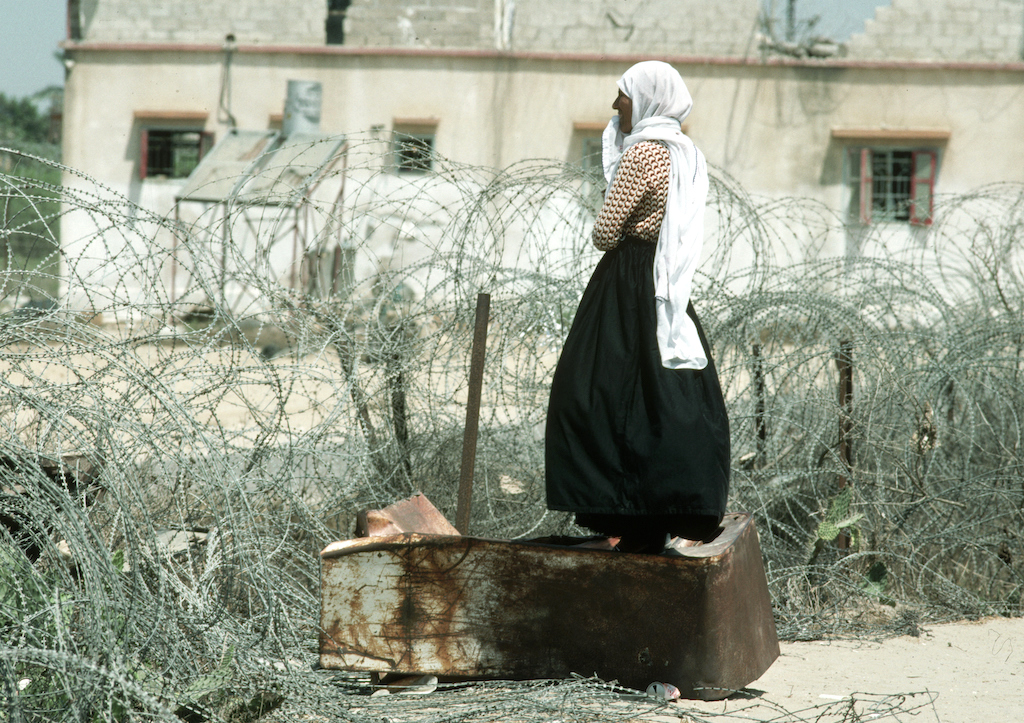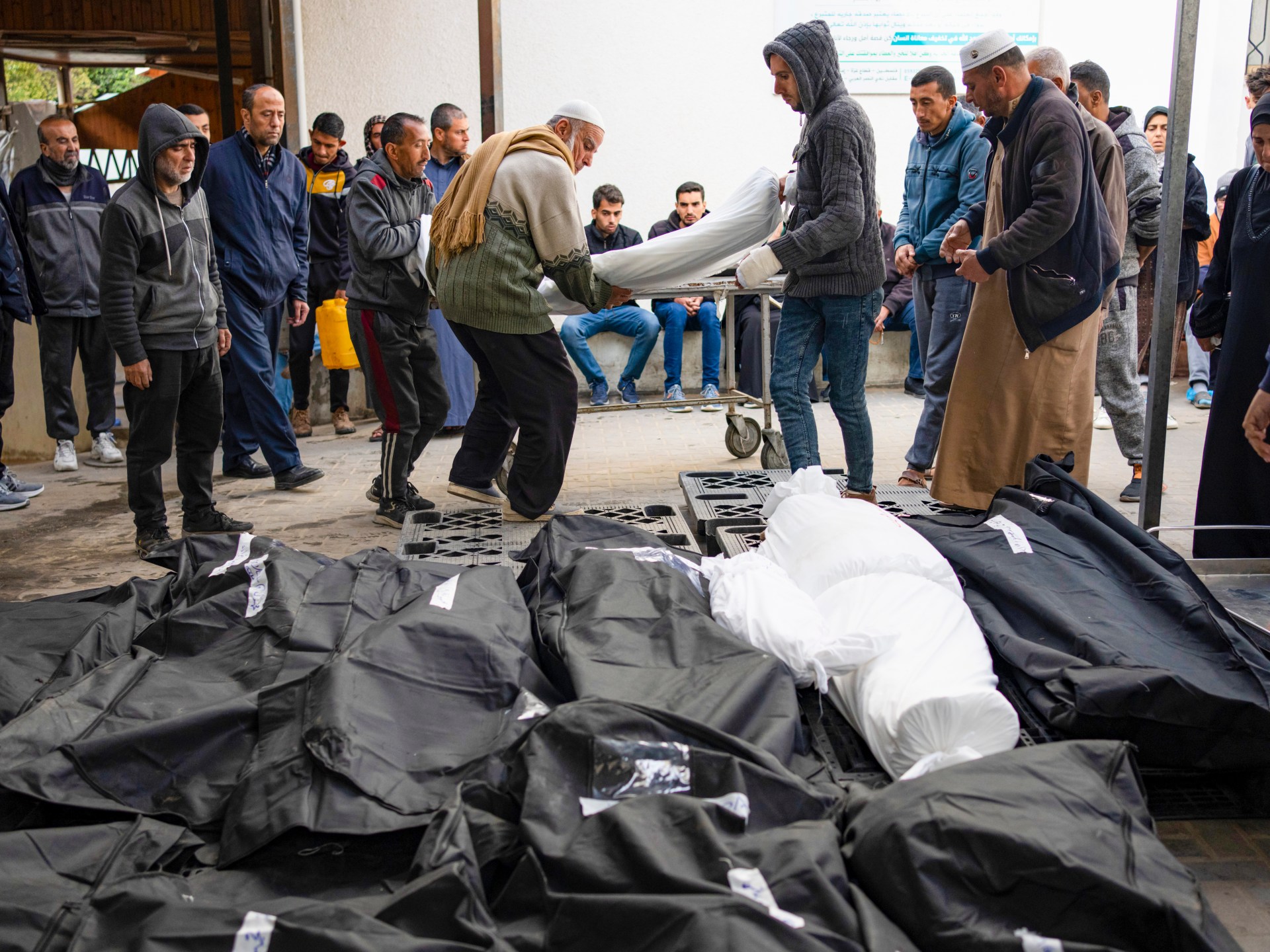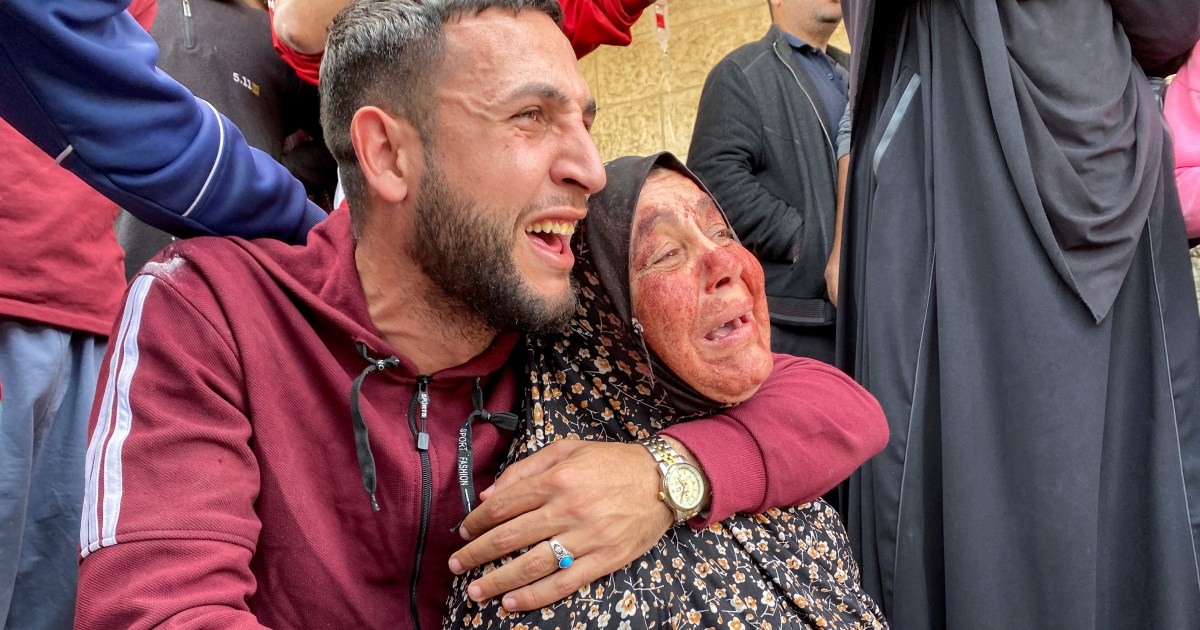Finnegan
I like a bit of a cavort
I think we can both agree that any solution seems at present a distant and forlorn hope. I lack your surety that the removal of Netenyahu will bring any such process closer. He is a figurehead who represents a current in Israeli society: a particularly uncompromising and murderous current. In a terrible mirror image of Black Panther Fred Hampton’s declaration that you can jail the revolutionary, but you can’t jail the revolution, you can jail Netenyahu, but you cannot jail murderous Zionist supremacy.Finnegan,
You wrote "No more delusional than a two-state solution. Netenyahu has both stated openly, and demonstrated by his actions, that a two-state solution will not be countenanced. We can imagine that his removal would dispense with the impediment, but that too is equally delusional."
Any type of solution is far away at the moment, even a limited ceasefire, but on the scale of improbable outcomes the two-state solution seems less far-fetched than a single state. As the longest serving PM, Netanyahu has had devastating influence, but even he'll be gone sooner rather than later, so what he says and does won't carry much weight a year or two from now. Chances that Israel will be able to muddle through with its current system and coalitions are fading. (I accept this may be an optimistic view, but it seems at least possible.)
And "Again, without minimising the difficulties the process will entail, I point to Ireland. (...) I’m sure both those eventualities, from the perspective pertaining thirty years ago, looked equally as unobtainable. I prefer to remain optimistic."
Not sure it's a useful comparison: the Republic of Ireland has been independent for over a century and is becoming prosperous, while Palestine is still struggling for independence and statehood, not to mention poor and partly destroyed. Ulster and Ireland haven't fought several full scale wars backed by foreign powers plus Intifadas (not to minimize the Troubles, but totally different scale). Even there, despite all the newly accumulated goodwill, economic ties, common framework, shared language and even religion, nobody seems to be seriously pursuing unification yet, either in the South or the North. It will take ages. The single-state solution is the hardest to achieve because it requires either massive mutual trust or equally massive and sustained force/oppression. Israel is finding out the limits of that last approach; the Palestinians don't have the means to even consider it in the foreseeable future, as recognized by Hezbollah and their Iranian backers.
Even optimists have to prefer what may work one day in a distant future to something that will remain a total non-starter for decades to come. Alberto Toscano writes, in the penultimate paragraph of his generally sympathetic review, about the necessity of 'transitional arrangements'. He quotes Moroccan antizionist Abraham Serfaty, who envisages these as a revised form of two-state solution. I wonder if Dr Eid accepts the need for 'transitional arrangements' like these.
You may view a single state as an even more remote possibility than a two state solution. And while of course, any transition to a single state will be a long, painful and fraught procedure that could well feature an interim two state as part of a transitional process. However, if we want a foretaste of what any two-state solution would feature, we need look only to Gaza and the West Bank (prior to October 7th) because what else were these but a de facto two state. Nominally autonomous but entirely controlled by the Israeli state- and in the case of Gaza, monitored ingress and egress, retained control of food, electricity and water supplies, and who could arrest supply upon any given whim. What would be cause for any optimism that any future Palestinian state would be little more than a bantustan that remained dependent on the largesse of Israel? And bantustans that are incapable of accommodating the right to return of Palestinians displaced since the Nakba.
Speaking of de facto two state solutions, what else was the Anglo-Irish Treaty of 1921 that allowed the British state to retain possession of the industrialised and prosperous north east? In both the case of Palestine and Ireland, partition was not accompanied by lasting peace. I’m not entirely convinced by your objections. While of course both situations are in ways radically different in character; in other ways however, they share the commonality of long term enmity, mistrust, brutality, killings, bombings and atrocities on both sides. If Roman Catholics can come to prefer peace to a state of war despite their relatives being brutally tortured and murdered by the Shankill Butchers, and Protestants can decide that comparative peace represents a superior modus vivendi to seeking vengeance against the perpetrators of the Omagh bombing, then who is to say deep divisions cannot, given the will and the way, be overcome in Palestine/ Israel?
My optimism in relation to what you characterise as “a total non-starter for decades to come” is grounded by the fact that what you characterise “one day work(ing) in a distant future,” i.e. a two-state solution, will not, and taking history as evidence, cannot bring lasting peace and reconciliation. Surely it is better to seek long term peace, however arduous that path may be, in opposition to what ultimately represents a sticking plaster applied to festering wounds?





